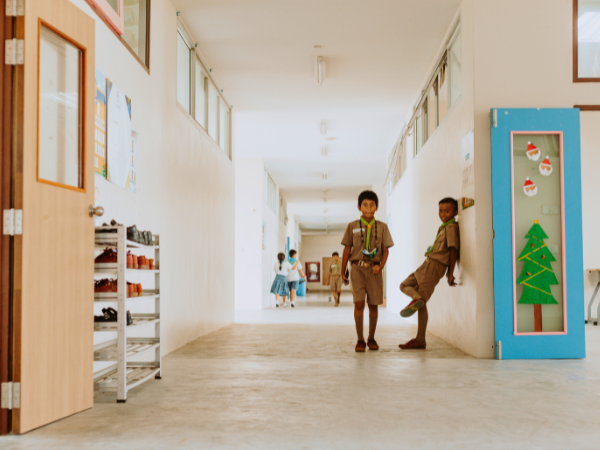Imagine walking into school, only to be stopped and tested for alcohol without your permission. How would that make you feel? The balance between ensuring safety and respecting personal rights is a delicate one.
This guide we’ll explore the legalities, the ethical considerations, and what you need to know to navigate this complex issue.
Understanding The Legal Landscape Of Student Searches
Schools must balance the need for a safe environment with students’ rights. This section explores the Fourth Amendment’s role in schools and key Supreme Court rulings that shape these policies.
The Fourth Amendment In Schools
The Fourth Amendment generally protects individuals from unreasonable searches and seizures. In a school setting, this protection is modified. Students have a reduced expectation of privacy compared to adults outside of school.
Key points about the Fourth Amendment in schools include:
- Protection Against Unreasonable Searches: Students have rights, but these rights are not absolute.
- Reduced Expectation of Privacy: Students in public schools expect some privacy, but not the same level as adults.
- Balancing Act: Courts balance students’ rights with the school’s need to maintain a safe and orderly learning environment.
Schools must show they have reasonable suspicion before conducting searches. The need for safety can justify certain actions. This is especially true when addressing drug and alcohol use among students.
Landmark Supreme Court Rulings
Several Supreme Court rulings shape the legal framework for student searches, particularly in cases involving breathalyzer tests. Notable cases include:
| Case Name | Year | Key Outcome |
|---|---|---|
| New Jersey v. T.L.O. | 1985 | Established that school officials only need “reasonable suspicion” for a search. |
| Board of Education v. Earls | 2002 | Upheld random drug testing for students in competitive extracurricular activities. |
In New Jersey v. T.L.O., the Court ruled that school officials need reasonable suspicion, not probable cause, to search students.
This ruling allows schools to act quickly if they suspect a violation of rules or laws. In Board of Education v. Earls, the Court endorsed random drug testing, reinforcing schools’ authority to ensure safety.
Scenarios Where Schools Might Consider Breathalyzing
Schools may consider breathalyzing in various situations. These scenarios include individualized suspicion, random testing for extracurricular activities, and special events like proms.

Individualized Suspicion
Individualized suspicion is a key reason schools might breathalyze a student. This means that school officials must have specific reasons to suspect a student is under the influence of alcohol.
Reasonable grounds for suspicion might include:
- Observable behavior
- Slurred speech
- Alcohol odor
- Erratic behavior
- Credible tips from staff or students
In such cases, school officials must act carefully. The search must be reasonably related to the suspicion. It should not be excessively intrusive. For instance, a breathalyzer test should only happen if there are clear signs of impairment.
Random Testing For Extracurricular Activities
Schools may also implement random breathalyzer testing for extracurricular activities. This often includes sports teams and clubs. Students who choose to participate may face random testing.
This type of testing serves several purposes:
- Promote a safe environment
- Discourage alcohol use among students
- Ensure fairness among participants
Such programs typically require students and parents to sign consent forms upon joining the activity. This is often seen as a policy requirement. Schools believe this random testing acts as a deterrent effect.
School Events And Proms
School events and proms are another scenario for breathalyzing students. Many schools see these events as high-risk for alcohol use. Therefore, they may implement breathalyzer tests.
Some key points about breathalyzing at events include:
- Safety precaution: Ensures student safety at school-sponsored functions.
- Implicit consent: Attending events may imply consent for testing.
- Varying legality: Laws about mandatory breathalyzing can differ by state.
Schools aim to discourage underage drinking during these events. They may use breathalyzers to create a safer atmosphere. However, the legality of these actions can be contentious.

The Role Of Consent And School Policies
Can schools breathalyze students without consent? This question raises important issues about the role of consent and school policies. The balance between maintaining a safe school environment and respecting student rights is crucial.
Explicit Vs. Implied Consent
Consent in schools can be divided into two main types: explicit consent and implied consent. Each type has its own rules and implications.
- Explicit Consent: This requires a direct, clear agreement from the student. Often, this agreement must be in writing. If the student is a minor, parental consent is usually necessary. Examples include:
- Signing a form before testing.
- Providing a written agreement for participation in drug testing.
- Implied Consent (Waiver): This occurs when a student or parent signs a document agreeing to a school policy. This document often includes a waiver for breathalyzer tests. Key points include:
- Signing a student handbook.
- Agreeing to school rules during enrollment.
Another important aspect is the ability of minors to give truly informed consent. This legal area is complex.
Communicating School Policies
Clear communication of school policies is essential. Schools must inform students and parents about drug and alcohol testing policies. This is especially true for breathalyzer tests.
- Clear Documentation: Schools should have well-defined, written policies. These documents must outline drug and alcohol testing procedures. This includes information about breathalyzers. Proper documentation protects the rights of students.
- Parent and Student Notification: Policies must be communicated at the start of the school year. This can happen during enrollment or orientation sessions. Schools should ensure that both students and parents understand the policies.
- Accessibility: Policies should be readily available. This can include:
- Student handbooks.
- School websites.
Schools have a responsibility to maintain a safe environment. However, they must also respect student rights. Clear policies and communication help achieve this balance.
Student Rights And Potential Protections
Students have rights that protect them from unreasonable searches and seizures. The balance between safety and personal liberties is delicate.
Right To Refuse (Under Certain Conditions)
Students have the right to refuse a breathalyzer test under specific conditions. If a school official lacks reasonable suspicion and there’s no pre-signed waiver, a student may have grounds to refuse. Here are some key points regarding this right:
- No Reasonable Suspicion: Schools need valid reasons to conduct a test.
- Pre-signed Waiver: Without this, students can challenge the request.
- Consequences of Refusal: Refusing a valid request can lead to disciplinary action as per school policy.
It’s crucial for students to understand their rights. A table below summarizes the conditions under which a student can refuse:
| Condition | Right to Refuse |
|---|---|
| No Reasonable Suspicion | Yes |
| Pre-signed Waiver | No |
| Valid Request | No |
Parental involvement is also important. Students should ideally be allowed to contact a parent or guardian before submitting to a test. This ensures that students have support during such situations.
Legal Challenges And Recourse
Students and parents can challenge breathalyzer policies if they believe their rights were violated. The Fourth Amendment protects against unreasonable searches. Here are some points to consider:
- Violation of Rights: If a breathalyzer test is conducted without proper cause, it may violate students’ rights.
- Attorney Consultation: Seeking legal advice from an attorney specializing in education law or civil liberties is recommended for such challenges.
- State-Specific Laws: Laws regarding student drug and alcohol testing can vary significantly by state, influencing the outcome of legal challenges.
Understanding local laws is vital. Many states have specific regulations about student testing. Parents and students should stay informed about these laws to better protect their rights.





Leave a Reply